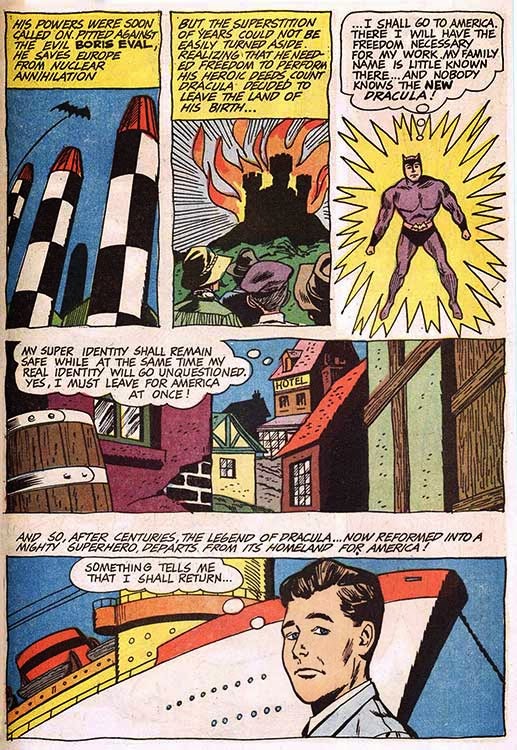...declared "has-beens" by the US government and Justice League of America, the Blackhawks are given one last chance to prove themselves in a mock battle with a robot.
But, they are forced to leave the testing ground (where they're losing badly) to guard one of their arch enemies, Jolly Roger, from other criminals, since his death would set off bombs in every major city...
Do we really have to say?
(One hint; the worst is yet to come!)

















































